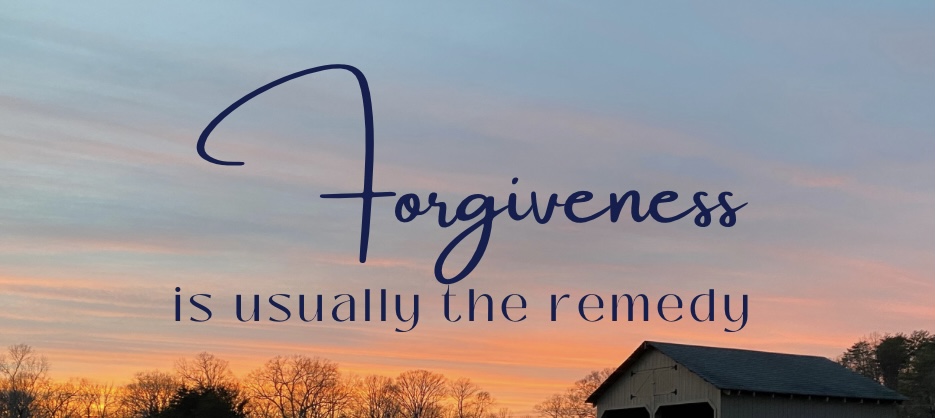On Thursday, my mom delivered a talk that was the sum of her life’s work. The talk was called, “Living Your Legacy” and offered my mother the opportunity to take stock of the legacy she was both living and leaving.
As she recalled the most poignant moments of her young life, notably surviving the hunger winter of 1944 in the Netherlands, she began noticing a pattern. As she continued following the golden thread throughout her life, it became more clear: Her life seemed to revolve around the message of forgiveness. Not surprisingly, she was then perfectly matched in her work and mission with Corrie ten Boom, who spoke of radical forgiveness.
Here are just three of my favorite stories my mother shared in her talk:
The Tossed Turnip
As she and her two brothers walked for ten days to the east of Holland in 1944, thoughts could have gotten the best of her and her family. Her mother was well-aware of this when she noticed a Nazi soldier snatching a carefully saved piece of yellow turnip from her brother’s hands. When the soldier realized it was not a piece of famous Dutch cheese, he threw it as far as he could, and it landed straight into a muddy puddle. Retaliation was burning in her brother’s eyes, but her mother intervened, looking him directly in those eyes, saying, “Arthur, don’t hate.” That intervention abruptly put an end to what could have been a life of retaliation.
The Tear Jar
When my mother was completing months of work on the movie, “The Hiding Place,” in 1974, she received a precious gift from the movie’s costume director. She was a small Jewish woman who, herself, had survived the horrors of the holocaust. On their final day together, she took my mother aside and gave her a small “tear bottle” (a tradition of grieving that started in Roman times). She then said to her, “Ellen, I have to thank you. Because of your love and because of Corrie’s message, I am, for the first time, living a life free from hate. I have forgiven the evils that were committed against me and my family.” My mother has kept that little bottle all these years.
The Shoe Rock
Years later, she was in a grand hall preparing for a talk and noticed a woman limping with an ailment that looked similar to what she had experience before her recent knee replacement. When she approached the woman and began encouraging her, the woman quipped back, “It’s not my knee.” My mom was puzzled but quickly moved toward the stage to deliver her talk. When she was finished, she made her way down the stairs and was met by the same woman. Strangely, she noticed she was no longer limping in pain. The woman’s words stuck with my mother, “Ellen, you noticed my limp earlier. Well, the day my husband left me, I put a stone in my shoe, which reminded me of the woman he left me for. While you were speaking today, I took that stone out of my shoe and forgave them.” The pain in her eyes was truly gone. She was free.
What struck me about these and all of my mother’s stories was that each of these people, including her brother, could have lived the rest of their life trapped in a jail of unforgiveness. It was only through direct intervention that they received a way out.
It’s hard to think of living in a state of unforgiveness as a choice. What seems closer to the truth is that we are trapped in a lie. For my mom’s brother, that lie would have been something like, “That scum isn’t worth the breath in his lungs.” For the costume director, the lie could have sounded like, “As long as I hate, they will never get away with this.” For the woman with the stone in her shoe, “I will never release them from my pain.”
Each lie is unique to the person but also similar at the core: “I hold the power with my unforgiveness.” And yet, in turn, each person was trapped and controlled by the lie they clung to. It was only in their choice to forgive that they were set free.
What is holding you in a jail of unforgiveness today? What is the lie that has trapped you? What will your life be like if you don’t choose forgiveness today? What intervention will free you?

